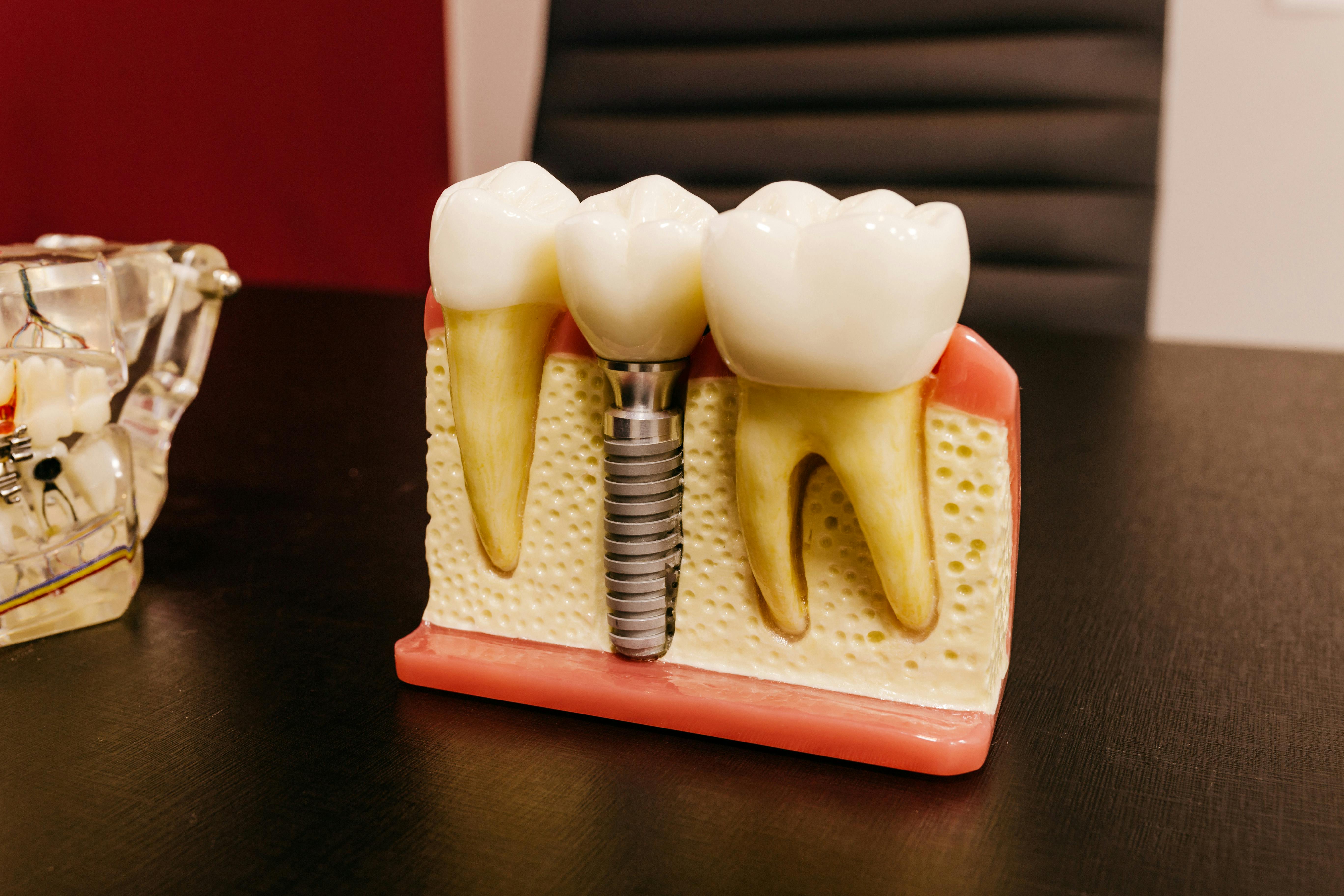Having teeth sensitivity to sugar can be a very uncomfortable and unpleasant experience. It can make it difficult to enjoy your favorite foods or beverages, and may even cause some pain and discomfort. Fortunately, there are some steps you can take to help reduce or eliminate your teeth sensitivity to sugar. In this article, we will discuss the various methods for fixing teeth sensitivity to sugar.Teeth sensitivity to sugar can be caused by a number of factors, including enamel erosion, gum recession, and tooth decay. Enamel erosion is caused by acidic foods and drinks that wear away the protective layer of enamel on the surface of the tooth. Gum recession occurs when bacteria and plaque build up around the gum line, causing it to separate from the tooth and exposing more of the sensitive root area. Tooth decay is caused by bacteria that produce acid which erodes away at the enamel and dentin layers of the tooth. Additionally, teeth sensitivity to sugar can be caused by certain medical conditions such as diabetes or bulimia, as well as certain medications that can cause dry mouth and reduce saliva production.
Teeth Sensitivity to Sugar
Teeth sensitivity to sugar is a common dental condition that is caused by the frequent consumption of sugary foods and drinks. When the enamel on the teeth wears away, it can cause sensitivity to sweet foods and drinks. This can be a very uncomfortable feeling, as it can cause a sharp pain when consuming something sweet. This discomfort may be felt immediately after consuming sugary substances or may take a few minutes to develop.
The most common cause of teeth sensitivity to sugar is from eating acidic foods and drinking sodas or juices that are high in sugar content. These acidic foods and drinks can cause the enamel on the teeth to wear away, leading to increased sensitivity. Other causes of teeth sensitivity include tooth decay, gum disease, crooked teeth, grinding or clenching the jaw, or using an abrasive toothpaste.
Treatment for teeth sensitivity to sugar will depend on the underlying cause. For example, if tooth decay is the cause, then treatment will involve filling cavities and treating any infection present in the mouth. If gum disease is present, then treatment may involve scaling and root planing procedures as well as antibiotics for any infection present in the gums. If crooked teeth are causing the sensitivity then orthodontic treatment may be necessary in order to correct any misalignment of the teeth.
In addition to these treatments there are some things that people can do at home in order to reduce their sensitivity to sugar. This includes brushing and flossing regularly with an appropriate toothbrush and dental floss; avoiding acidic foods and drinks; using a soft bristled brush; not grinding or clenching your jaw; and using a desensitizing toothpaste such as Sensodyne or Colgate Sensitive Pro-Relief Toothpaste.
It is important for those who suffer from teeth sensitivity to sugar to visit their dentist regularly for check-ups and professional cleanings so that any problems can be identified early on before they become more serious issues. In most cases, regular visits with your dentist will help prevent any further damage from occurring due to frequent consumption of sugary substances.
Tips to Prevent Teeth Sensitivity to Sugar
Sensitivity to sugar can cause a lot of discomfort and pain in the teeth and gums. To prevent teeth sensitivity to sugar, it is important to practice good oral hygiene habits. Here are some tips that can help you keep your teeth healthy and free of sensitivity:
1. Brush your teeth twice daily with a toothpaste that contains fluoride, which helps strengthen tooth enamel.
2. Floss regularly to remove food particles and plaque from between the teeth and along the gum line, which can help reduce sensitivity.
3. Avoid sugary drinks such as soda or juice, as they can increase sensitivity in the teeth.
4. Use a straw when drinking sweet beverages so that the sugar doesn’t directly contact your teeth.
5. Rinse your mouth with water after consuming sugary foods or drinks to help wash away any residue left behind on your teeth.
6. Avoid acidic foods and beverages, as they can weaken tooth enamel and make your teeth more sensitive to sugar.
7. Chew sugar-free gum after meals to increase saliva production, which helps neutralize acids in the mouth and rinse away debris from the teeth.
8. Visit your dentist regularly for check-ups and professional cleanings so they can monitor any changes in your oral health or look for signs of sensitivity or decay caused by sugar consumption.
Diet Considerations for Teeth Sensitivity to Sugar
People with sensitive teeth should be especially mindful of their diet, as certain foods can irritate the teeth or cause further damage. Sugary and acidic foods can be particularly difficult for those with sensitive teeth. To reduce tooth sensitivity and discomfort, it is important to avoid or limit consumption of these items.
Refined sugars are found in many common food items such as candy, cakes, cookies, fudge, ice cream, doughnuts, syrups and jams. These foods should be avoided as much as possible. Additionally, sugar substitutes like high fructose corn syrup are also known to worsen tooth sensitivity.
Citrus fruits are also known to increase tooth sensitivity due to their acidity level. Foods like oranges, lemons and limes contain citric acid which can weaken enamel and increase pain in the teeth. Other acidic foods such as tomatoes and pickles should also be avoided or eaten in moderation to help prevent further damage to teeth.
To help reduce tooth sensitivity it is important to maintain a healthy diet that is low in sugar and acidity levels. Eating crunchy vegetables such as celery or carrots can help remove plaque from the teeth while providing essential vitamins and minerals that promote dental health. Nuts are also beneficial for dental health due to their high levels of calcium which helps strengthen enamel and reduce tooth sensitivity. Whole grains and dairy products like yogurt are also excellent sources of calcium while providing other essential vitamins and minerals that support dental health.
Different Types of Teeth Sensitivity to Sugar
Tooth sensitivity to sugar can manifest itself in several different ways. For some people, sugar can cause a temporary, dull ache in the teeth and gums. This is usually caused by changes in air pressure or temperature that cause the tooth enamel to expand and contract, resulting in aching pain. For others, sugar can cause sharp pains when eating or drinking certain foods or beverages. These sharp pains may last for a few seconds after the food or beverage has been consumed.
In some cases, sugar can also cause a burning sensation on the tongue or gums that may last for several minutes after consumption. This burning sensation is usually caused by an increase in acidity levels in the mouth as a result of eating sugary foods and drinks. Additionally, sugar can also lead to an increase in decay and cavities as it creates an environment conducive to bacteria growth.
Finally, some individuals may experience an intense sensitivity to sweet flavors that causes a strong reaction in their mouths. This reaction is often accompanied by a tingling or itching sensation that can be both uncomfortable and unpleasant. This type of sensitivity to sugar is often caused by overly sensitive taste buds on the tongue and can be difficult to treat without medical intervention.
Overall, there are many different types of teeth sensitivity to sugar that individuals may experience depending on their individual circumstances. While many people are able to manage their symptoms with lifestyle changes such as reducing their intake of sugary foods and drinks, others may need medical intervention such as using fluoride treatments or desensitizing toothpastes.

Treating Teeth Sensitivity to Sugar with Toothpaste
Tooth sensitivity to sugar is a common problem and can lead to more serious dental issues if left untreated. Fortunately, there are several toothpastes on the market designed specifically to address this issue. These toothpastes contain ingredients that help reduce teeth sensitivity and protect against further damage.
The active ingredients in these toothpastes are usually potassium nitrate and strontium chloride. Potassium nitrate helps reduce the pain that comes with teeth sensitivity by blocking the nerve pathways that send signals of discomfort to the brain. Strontium chloride also helps reduce pain by blocking the transmission of pain signals from the nerves of the tooth to the brain.
These ingredients also act as a barrier between your teeth and sugary foods or drinks, helping to prevent further damage from occurring. Additionally, some toothpastes contain fluoride, which helps strengthen enamel and reduce sensitivity as well.
When choosing a toothpaste for treating teeth sensitivity, it’s important to look for one that contains both potassium nitrate and strontium chloride, as well as additional ingredients such as fluoride, calcium carbonate, or baking soda. Additionally, it’s important to read labels carefully and speak with your dentist if you have any questions about which type of toothpaste is best for you.
By using a specially formulated toothpaste designed for treating teeth sensitivity, you can help reduce your discomfort and protect your teeth from further damage caused by sugar consumption.
Home Remedies for Treating Teeth Sensitivity to Sugar
Tooth sensitivity to sugar is a common problem caused by enamel erosion. It can cause pain and discomfort when eating or drinking certain foods. Fortunately, there are some simple home remedies that can help reduce tooth sensitivity so you can enjoy your favorite sweet treats without the pain.
First, make sure you’re brushing with a soft-bristled toothbrush twice a day and use fluoride toothpaste. Gently brush your teeth in circular motions for two minutes each time and floss at least once a day to remove plaque buildup. This will help protect your teeth from further damage and reduce sensitivity.
You should also limit your consumption of sugary drinks and snacks. Try to avoid drinks like soda, energy drinks, and sports drinks as these all contain high levels of sugar which can contribute to enamel erosion. You should also try to chew sugar-free gum after meals or snacks as this will help increase saliva production which helps wash away food particles that could cause further damage to your teeth’s enamel.
You may also want to consider using an over-the-counter desensitizing toothpaste which contains potassium nitrate that helps block the nerve pathways that lead from the tooth surface to the nerve center located in the jawbone. If you find that these remedies aren’t helping, talk to your dentist about other options such as fluoride varnish treatments or sealants which can help reduce sensitivity by acting as a protective barrier against food particles and acids that cause damage to enamel.
Finally, it’s important to have regular dental checkups so that your dentist can monitor any changes in your teeth’s health and detect any signs of decay or infection early on. With proper oral hygiene habits combined with these home remedies, you can help reduce tooth sensitivity due to sugar and keep enjoying all those sweet treats without any discomfort!

Conclusion
In conclusion, tooth sensitivity to sugar is a common problem that can be addressed with a few simple steps. Start by visiting your dentist and making sure that cavities and other oral health problems are ruled out. Make sure to brush and floss regularly, avoid acidic foods when possible, and rinse after eating or drinking sugary items. If symptoms persist, talk to your dentist about trying fluoride treatments or other specialized products. With the proper dental care and lifestyle changes, you can reduce tooth sensitivity to sugar and enjoy sweet treats without the uncomfortable side effects.
Remember that resolving tooth sensitivity can take time, so don’t give up if results aren’t immediate. If you stick with your dental care routine and follow the advice of your dentist, you should be able to enjoy sweet treats without any pain or discomfort in no time.
